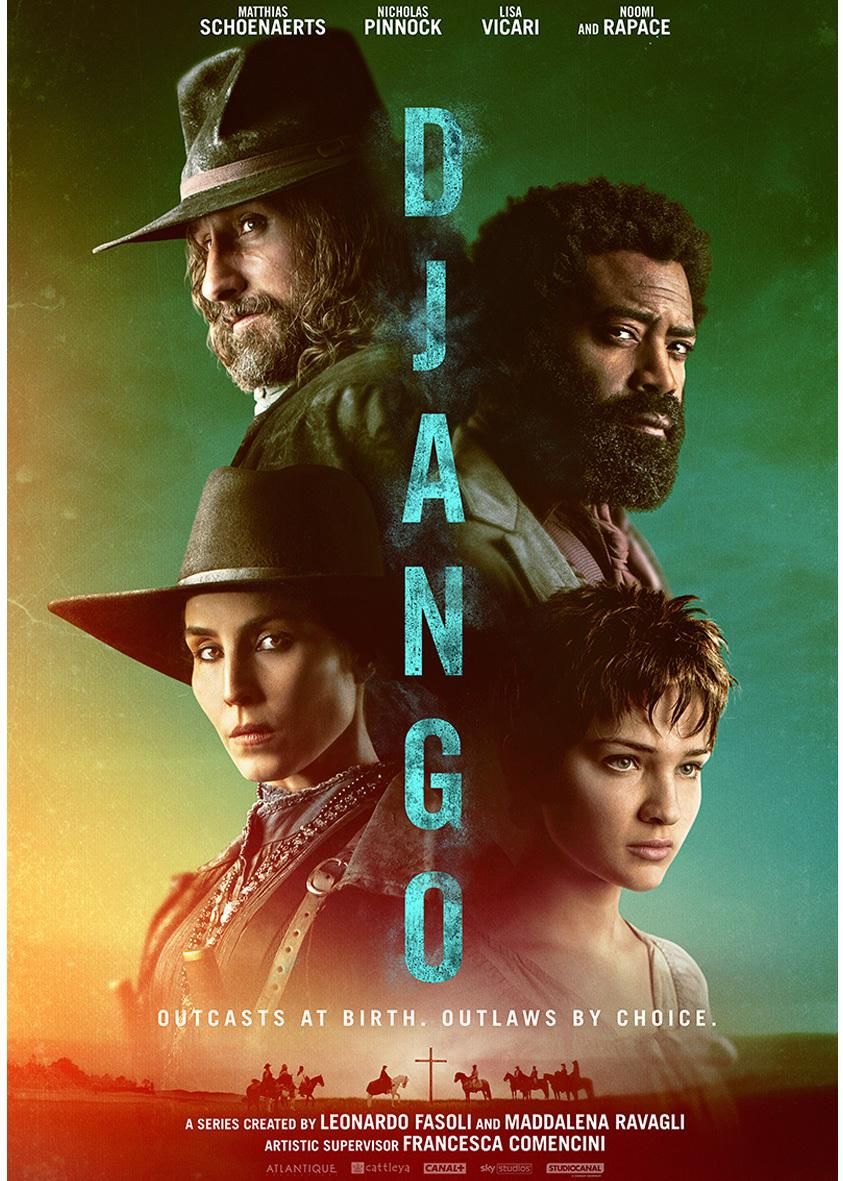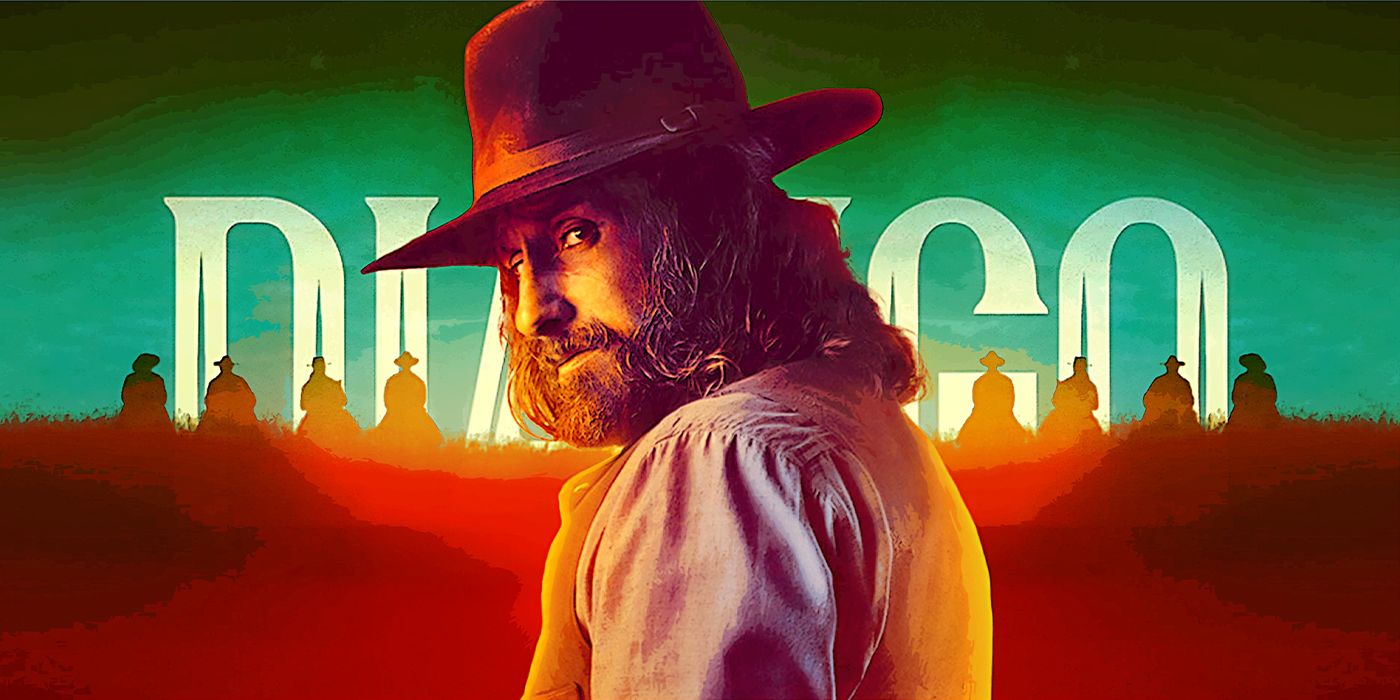The Big Picture
- The series Django is not related to Quentin Tarantino's film Django Unchained, but the popularity of the movie helps draw in an audience.
- The original Django character was a white Union soldier seeking revenge on the Ku Klux Klan, but the fight against racism has always been tied to the character's name.
- The series uses the genre of Spaghetti Western as a Trojan Horse to tell a more complex story, challenging the audience's views on race, sexuality, and morality.
Many people who stumble upon the new series Django will likely wonder whether this Western miniseries is related in any way to Quentin Tarantino's 2012 film Django Unchained which broke box office records. The short answer is no, although the movie's popularity certainly helps to draw in an audience for the show. If this seems like an immoral use of a famous movie brand, title, and character, bear in mind that Tarantino himself did just this for his own movie, and that his film was inspired by the 1966 movie Django by Sergio Corbucci.
Unlike Django Unchained, in which the name is given to Jamie Foxx's slave-turned-bounty-hunter, the original character was a white Union soldier who, after the Civil War, ventures to a US-Mexico border town and finds that his love has been killed by the Ku Klux Klan. To prevent more genocide, Django takes it upon himself to wreak bloody revenge on his enemies. Although the character is white, the fight against racism has always been tied to the character's name. Now, Django returns to his roots, being played by a white European in typical Spaghetti Western fashion, but its creators Leonardo Fasoli and Maddalena Ravagli recognize their responsibility to use Django to tell an inherently African American-related story.

Django (2023)
Follows Django, a gunslinger in the Wild West who is searching for his daughter who he believes escaped the murder of his family eight years ago.
- Release Date
- October 1, 2023
- Cast
- Matthias Schoenaerts , Nicholas Pinnock , Lisa Vicari , Noomi Rapace
- Main Genre
- Western
- Seasons
- 1
- Creator(s)
- Leonardo Fasoli , Maddalena Ravagli
What Is 'Django' About?
Django follows its eponymous hero, this time played by Belgian actor Matthias Schoenaerts, best known for Red Sparrow, The Danish Girl, and the only actor to reprise his Loft role in the 2014 American remake. Here, he's a version of Corbucci's Django with a haunted past. Without giving too much away, this Django has lost his entire family to tragedy, except for his headstrong daughter Sarah. Sarah is played by Dark's Lisa Vicari, who, despite her young age, marries an older African American man named John Ellis (Nicholas Pinnock) whose own past brings trouble to the lives of Sarah and Django. Set in the early years of emancipation, John is the founder of New Babylon, a city that welcomes those of every color and creed, but bears its own dark side too.
When Django enters New Babylon, his true identity as Sarah's estranged father is a secret only the two of them know. She saves him from being hung by John and his men, but when he proves his worth to John and becomes a valued resident of New Babylon, Sarah wants him gone. It's clear from the beginning that their relationship is complex, and the series takes its time peeling back the layers of all its simultaneous storylines. Another major plotline is that of John's nemesis Elizabeth, a merciless killer played by Prometheus and The Girl with the Dragon Tattoo star Noomi Rapace. These rivaling tribes have more in common than they let on, including a shared history that Django and Sarah will come to regret getting involved with. Rounding out the cast is Corbucci's original Django, Franco Nero, who also appeared briefly in a Django Unchained cameo in 2012.
The ‘Django’ TV Series Uses Its Genre as a Trojan Horse
"Spaghetti Western" refers to a cinematic movement pioneered by Sergio Leone's Dollars trilogy, in which stories of the American frontier were produced by independent companies for less money in Italy, hence its name. This inspired other countries to follow suit, with Spain's own entries being dubbed "Paella Westerns," and so on. But ultimately, what makes a movie a Spaghetti Western is arguably the way it tells its story. Sergio Corbucci's mission with Django was to depict the world of "mud and blood" — the gray side of humankind — rather than the clean-cut black-and-white world depicted in the Hollywood Westerns of the '50s. This series goes even further than that. Nothing is portrayed as simple in Django, including the character's sexuality.
This detail isn't revealed until part-way through the series, however, perhaps strategically. This Trojan Horse method honors Sergio Corbucci's original films like The Great Silence, where he would often disguise a left-leaning anti-establishment story within a genre catered to more conservative audiences. Whereas other modern Spaghetti Westerns opt to recreate the movies of the '60s in style and in content, 2023's Django goes deeper in doing what it was built for, modernizing its poignancy for the more relevant audience of today.
How Does 'Django' Impact Spaghetti Westerns?
Tarantino's Django Unchained, as well as his follow-up The Hateful Eight, takes an abundance of stylistic inspiration from the more campy Spaghetti Westerns of the 1960s, but having been filmed in the USA, can they really be called Spaghetti Westerns? The genre by now generally refers to the style and content of the film, rather than its production history. So why doesn't the Django series feel stylistically similar to Django Unchained at all? The series opts for a slower, more pensive pace that allows the tension to slowly unfurl over its 10-episode run. As an Italian-French production shot in Romania, however, it does return the genre to its geographical genesis somewhat. This series makes us question, what is a Spaghetti Western, then? Is it a Western shot in Europe, or the content of its frames?
Regardless, the cast's European nationalities not only offer the series a charm that was abundant in the original Spaghetti Westerns (with some clunky ADR every now and again) but also gives them various realistic mid-Atlantic accents more indicative of this transitional period. Its pace sometimes punishes its audience, and the story could perhaps have been told over fewer episodes, but ultimately it succeeds in immersing its audience into the gritty world of the old American West. It challenges its audience's views on race, sexuality, and morality, perhaps more directly than the entries of the 1960s did, but with every member of its cast visibly committed, it's hard not to respect the 41st entry into the unofficial Django franchise.
Django is available to watch on Netflix in the U.S.

